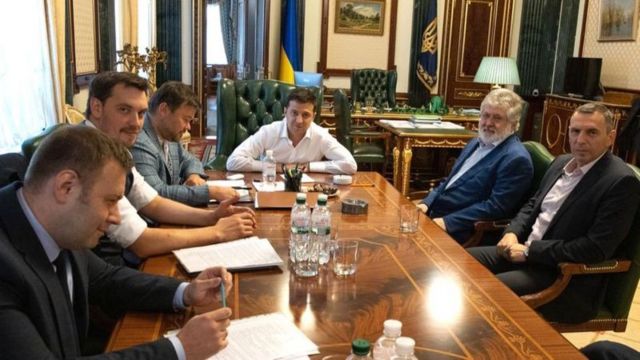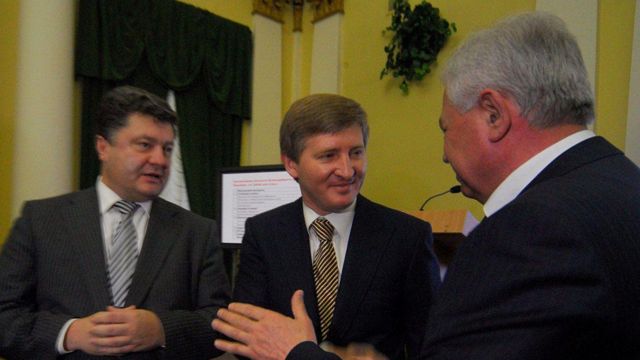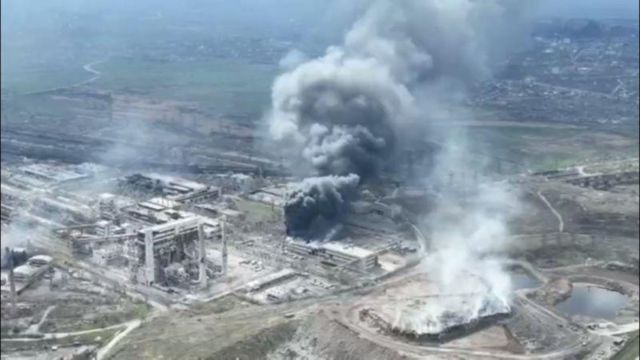In February 2023, Volodymyr Zelenskyy declared that he had "destroyed the oligarchs" in Ukraine. This is how he summed up the results of almost four years of activity in the position of president at that time.
Half a year after these statements, the Venice Commission criticized the presidential law "On prevention of threats to national security related to the excessive influence of persons who have significant economic or political weight in public life (oligarchs)", which is now called the law on de-oligarchization .
The commission's lawyers pointed out that the law is too personal and punitive and recommended that it be put on hold. The authorities agreed to this and, in particular, suspended the creation of a public register of oligarchs, which was planned to include more than 80 businessmen.
In a report in November, the European Commission named insufficient progress in reducing the influence of oligarchs among the three problem areas that Ukraine must overcome in order to start negotiations on joining the EU.
But at the same time, for almost two years of war, the fortunes and influence of those who are traditionally called oligarchs in Ukraine have significantly decreased.
Oligarchic capital
Since the law, which contained the definition of the concept of "oligarch" and the criteria by which they were planned to be included in the register, was criticized in the European Union, now it can only be about the "non-legal definition of an oligarch as a person who owns significant assets and media resources and influences the situation in the country," Volodymyr Landa, an expert at the Center for Economic Strategy (CES), told BBC Ukraine.
The estimation of the wealth of oligarchs has significant errors due to the war, and the nominal value of assets does not always reflect the real value, he emphasizes.
And yet, in the latest study were able to estimate the shares of different types of capital in the Ukrainian economy, including oligarchic capital.
CES analyzed the capital of 300 largest enterprises of Ukraine, as well as state and communal enterprises and modeled their distribution by types of capital.
According to Volodymyr Landa, who is one of the authors of the study, today oligarchic capital makes up a fifth - 21% - of all capital.

According to CASE Ukraine expert Volodymyr Dubrovskyi, it is still too early to say that the oligarchic system has been destroyed, as President Zelenskyi said almost a year ago.
"Oligarchs, like corruption, are not phenomena that exist by themselves, they are manifestations of systemic problems that exist in the country. And they did not go anywhere. Because the combination of business and power, if not at the central, then at the local level, definitely remains. Although the influence of the oligarchs has fallen, and they understand that now is not the time to promote their political interests," says Volodymyr Dubrovskyi in a conversation with the Ukrainian BBC.
At the same time, says Volodymyr Landa, an expert at the Center for Economic Strategy, the share of oligarchic capital is likely to change due to objective reasons.
"We see that oligarchs have not appeared in recent years. Most of the oligarchs earned their capital from the privatization of the 90s, and the last ones appeared, apparently, during the presidency of Viktor Yanukovych, that is, more than 10 years ago," the economist said in a conversation with VVS Ukraine.
The capital structure is also changing.
"A new generation of business, in particular IT companies, is growing. None of them were distinguished in the oligarchic privatization of the 90s, they are developing thanks to their own talents," adds Volodymyr Landa.
Has partial de-oligarchization taken place?
Those who are considered oligarchs in Ukraine do not consider themselves as such.
Rinat Akhmetov called himself "the largest private investor, employer and taxpayer", Viktor Pinchuk considered himself a "businessman and philanthropist".
Other businessmen who were traditionally considered to be oligarchs and who would probably end up in the register of oligarchs prepared by the NSDC: Ihor Kolomoiskyi, Petro Poroshenko, Yuriy Kostyuk, Kostyantyn Zhevago, Oleksandr Yaroslavskyi, the Gereg family also denied their oligarchic status.
After the recommendation of the Venice Commission to suspend the anti-oligarchic law, the richest businessmen got additional reasons not to consider themselves oligarchs.

However, the president and his team are sure that even the very fact of passing the law contributed to reducing their "appetites".
"I am convinced that the clan of oligarchs is the greatest evil that has led to the state that exists now. This distorted model of the economy, the artificial management of the country led to the fact that Ukraine received the label of a very corrupt country, which we have to tear off with blood", - assured the head of the Council Ruslan Stefanchuk in an interview with Radio Svoboda .
He is convinced that the law on de-oligarchization, despite its criticism in European structures, partially changed the status of oligarchs, as some of them began to give up their property.
The richest of businessmen, Rinat Akhmetov, in the summer of 2022, when the time of launching the oligarch register was approaching, stopped the publication of print media owned by his corporation SCM, and also canceled the licenses of the company "Media Group of Ukraine" and thus reduced the chances of getting into the oligarch register.
Petro Poroshenko also changed the status of "Pyato" and "Pryamo" TV channels. Both he himself and the "Free Media" holding, which acquired the TV channels, admitted that this was done under duress, due to the requirements of the law on oligarchs.
However, the main losses of the oligarch's assets are related to the war.
Rinat Akhmetov and Ihor Kolomoisky suffered the greatest losses.
Ukrainian Forbes calculated that Akhmetov's assets decreased by 64%, he lost 8.8 billion dollars. The largest of them is the Mariupol Metallurgical Plant named after Ilyich and Azovstal were destroyed, and the energy companies included in DTEK were damaged by rocket attacks.

Ihor Kolomoiskyi's assets also decreased, primarily after the nationalization of the companies "Ukrnafta" and "Ukrtatnafta". He lost about a billion dollars, remaining with 800 million dollars.
Due to the loss of Ukrnafta and Ukrtatnafta, his business partner Gennadiy Bogolyubov also became poor.
As for other big business leaders who were classified as oligarchs, although they lost assets, these losses were less significant.
Viktor Pinchuk's metallurgical business and Petro Poroshenko's food business are mainly located in areas where hostilities are not taking place, so they did not stop working.
The list of the rich included the owners of the Epicenter network Oleksandr and Halyna Geregy, as well as the agricultural magnate Yuriy Kostyuk, whose enterprises suffered at the beginning of the war. But the decrease in their profits was not as significant as that of Akhmetov or Kolomoiskyi.
What's next?
The Venice Commission believed that the law on de-oligarchization is conceptually wrong and advised not to change it, but to create a system of rules that would make it impossible for oligarchs to appear.
For this, it is necessary to adopt dozens of laws in the field of justice, fight against corruption, money laundering, public procurement, taxes, party financing. And this can take a lot of time.
It cannot be said that Ukraine has not done anything in recent years. Earlier, in interim reports, the European Commission indicated some progress. Even in the last weeks before the EU summit, which will begin on December 14 in Brussels, the Parliament adopted many laws recommended by the European structures.
Official Kyiv hopes that the European Union will appreciate the steps already taken by the country and will not block the start of accession negotiations.

